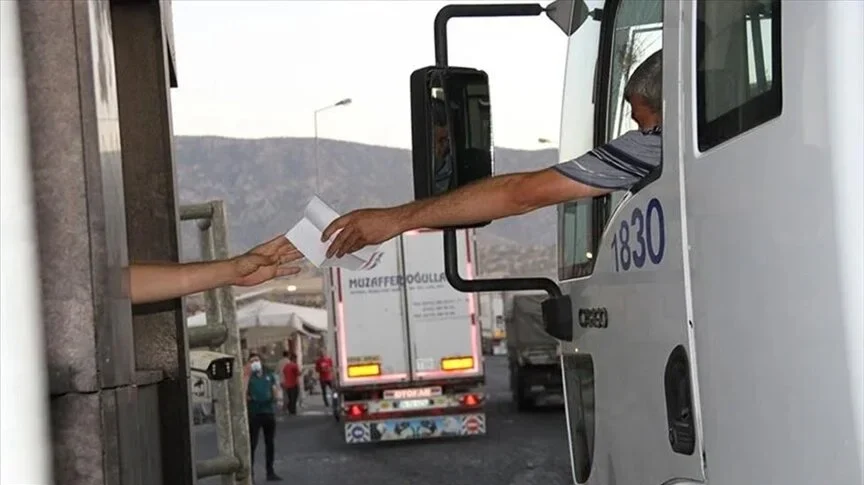ANKARA(WNAM Monitoring): The head of the International Association of Movers (UND) said Turkish President Recep Tayyip Erdogan’s visit to Iraq next week is an important chance to announce an alternative, safe and fast trade route.
The Türkiye-Iraq Development Road Project, which aims to shorten the travel time between Asia and Europe through Türkiye with the Great Faw Port, is critical to Türkiye for its trade with Iraq, the United Arab Emirates, Qatar, Kuwait and Oman, Serafettin Aras told Anadolu.
There are 200,000 road trips to those countries annually, he said, adding if security problems in southern Iraq are resolved, the Development Road Project could turn into an effective alternative corridor, especially due to the Israeli-Iranian conflict.
Iraq became the 78th country to join the Transport of Goods Under Cover of TIR Carnets (TIR Convention), he noted.
The positive political relations between Türkiye and Iraq are positive for the project but the security risks of Iraq’s involvement in the event of a possible Israeli-Iranian war and the activities of terrorist organizations should be taken into account, he noted.
Pointing out that countries have strengthened their borders due to sudden developments and conflicts in existing supply chain corridors, Aras said opening alternative routes became important to the global economy.
Referring to the tension between Iran and Israel, Aras said the Iran-Turkmenistan route is one of the main alternative routes instead of the Northern Corridor, which was closed during the Russian-Ukrainian War, and the Central Corridor, from Georgia to Central Asia through the Caspian Sea, with high costs and transit times.
Aras stated that the escalation of tensions or evolution into a war may mean losing an important transit corridor for trade and transportation to the Central Asia region beyond the transportation to Iran.
“As of 2023, 86% of approximately $3.3 billion worth of exports to Iran are carried out by land,” he said.
Aras said in the event of a war, 34,000 vehicles, 29,000 of which are Turkish-registered, carrying transit transportation through Iran by leaving Türkiye’s Gurbulak and Esendere border gates for the Central Asia region, will be adversely affected.
Pointing out that the vehicles will increase the problematic densities at Türkiye’s border gates with Georgia as they turn to other eastern border gates, Aras said the increase in logistics costs and transit times of trade toward the Central Asian region may lead to serious disruptions in trade and supply chains.
Stating that the Trans-Caspian International Transport Route has become increasingly important for the sustainability of international supply chains linked to Europe-Central Asia with the impact of the Russia-Ukraine war and the Suez Canal crisis, Aras said: “The fact that the costs in the corridor cannot be reduced due to the fees and taxes imposed by the countries on the route in transit transportation, as well as the problems arising from the insufficient Ro-Ro capacity in transportation over the Caspian Sea, makes the Zengezur Corridor important as an important need.”
Emphasizing that steps should be taken on issues ranging from fees applied in transportation to border waits for the effective use of the Zengezur Corridor, Aras said as of 2023, nearly 30,000 vehicles, 19,000 of which were Turkish-registered, were using Türkiye’s Dilucu Border Gate.
He said some process improvements and modernization projects to be carried out at the border crossing to Nakhchivan and the Single Window System to be established are important.
“With the implementation of these practices and the removal of unnecessary fee/tax practices, an alternative, effective corridor can be provided to the Iranian transit corridor.
“It will also be important to ensure the security of the Zangezur Corridor and to realize it as soon as possible in the event of increased Israeli-Iranian tension or war,” he said.


